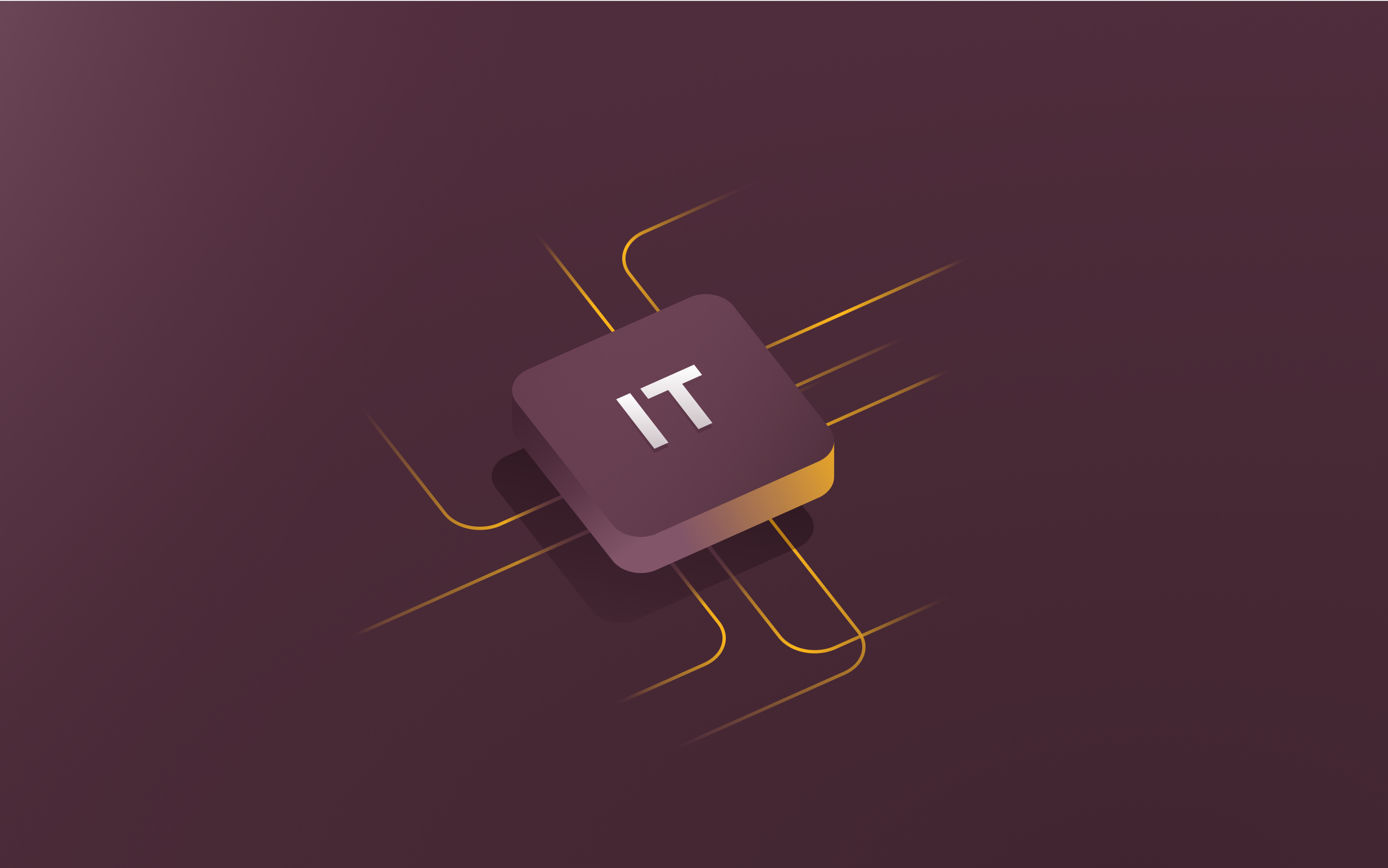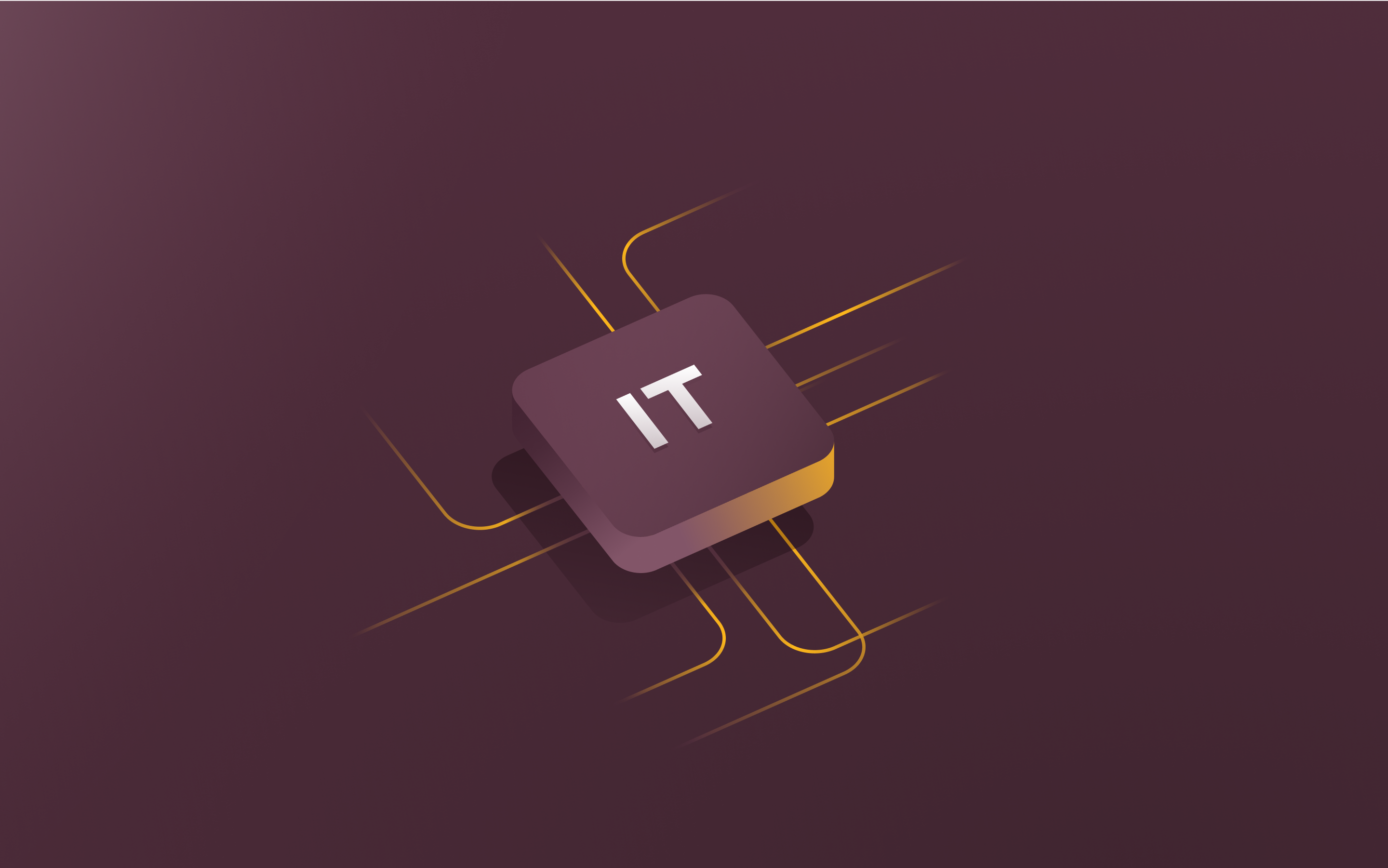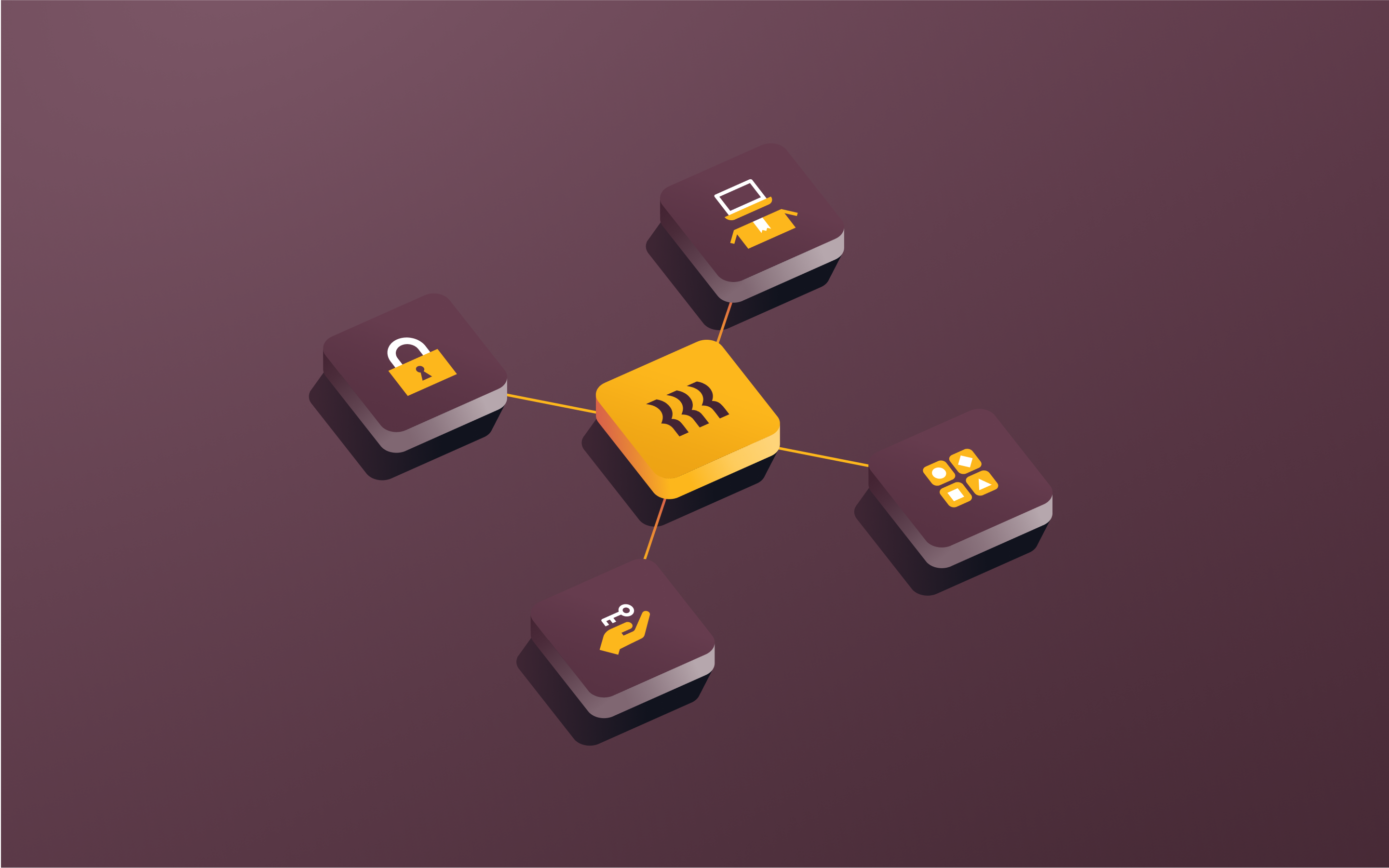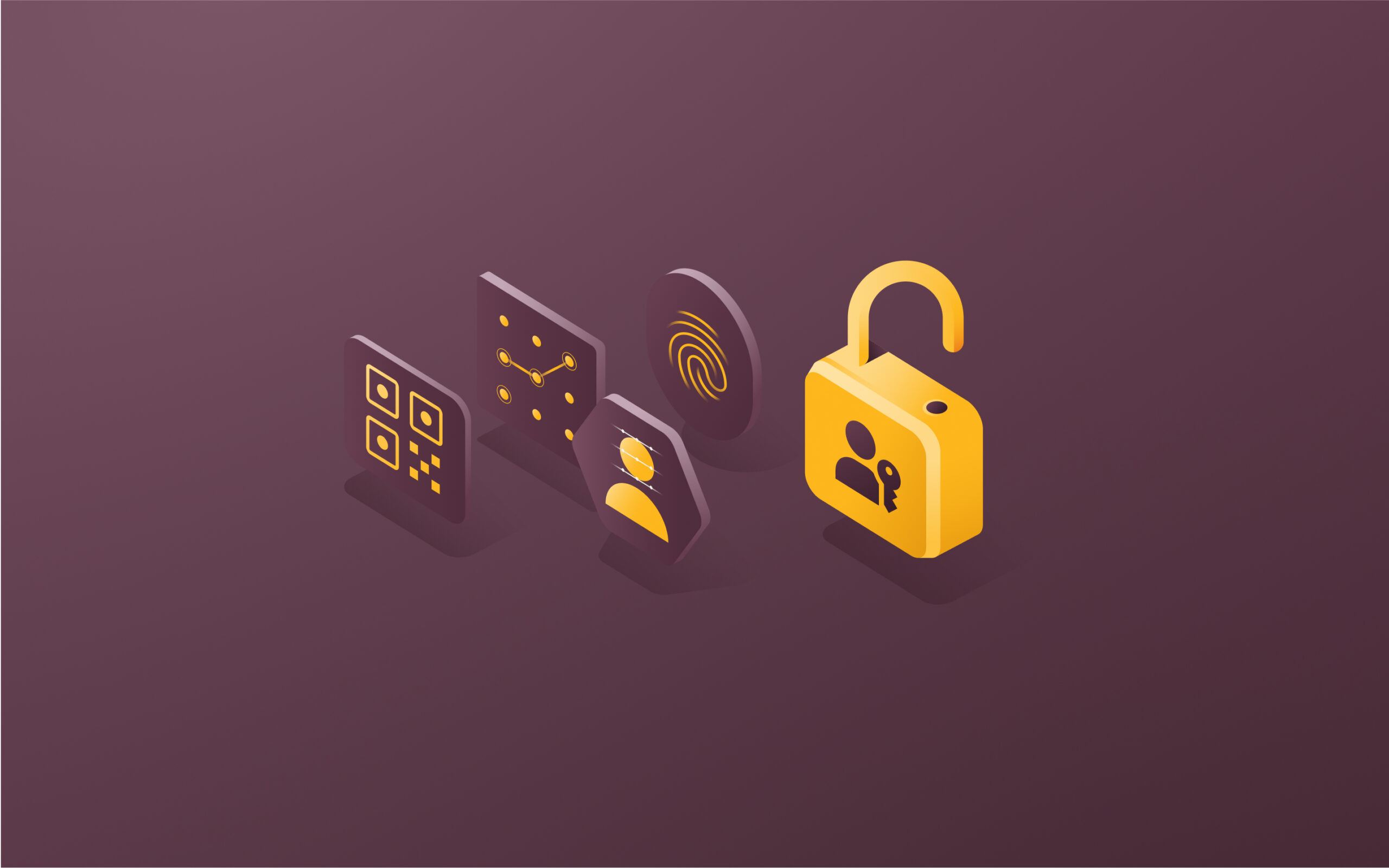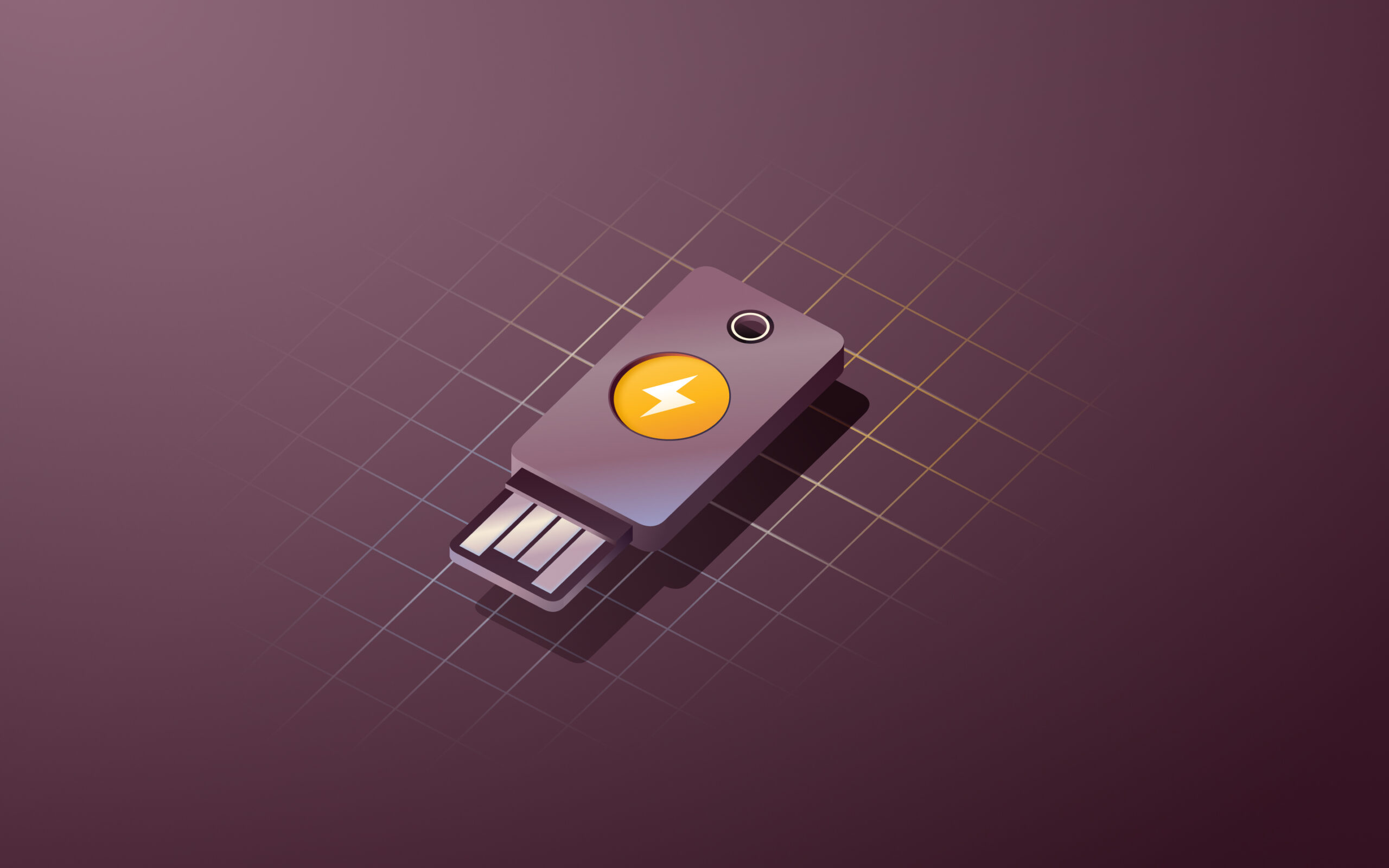Top 10 multi-factor authentication (MFA) providers and software
As cyber threats continue to emerge and evolve, businesses of all sizes are recognizing the critical importance of implementing robust security measures. One of the most simple and effective ways to protect your company's digital assets is by deploying multi-factor authentication (MFA).
In this article, we'll dive into the world of MFA, exploring what it is, how it works, and the top providers in the market.
What is multi-factor authentication (MFA) and how does it work?
Multi-factor authentication is a security mechanism that requires users to provide two or more pieces of evidence to verify their identity before granting access to a system or application. By requiring multiple forms of identification, MFA makes it much harder for unauthorized individuals to gain access, even if they manage to compromise one of the factors.
MFA is sometimes referred to as two-factor authentication (2FA), although they are not exactly the same. While 2FA specifically requires two factors, MFA can involve two or more factors. This subtle distinction is important, as MFA offers the flexibility to use additional layers of security beyond just two factors when needed.
Here's a simple scenario: Imagine you're trying to access your company's financial records stored in a cloud-based application. With MFA enabled, you'll first enter your username and password as usual. However, instead of immediately gaining access, you'll be prompted to provide an additional form of identification. This could be a code sent to your smartphone, a fingerprint scan, or even a physical security key. Only after successfully presenting this second piece of evidence will you be allowed to view the financial records.
Types of multi-factor authentication (MFA)
There are several types of MFA, each relying on different factors to verify a user's identity:
- Knowledge-based authentication: This type of MFA relies on something you know, such as a password, PIN, or the answer to a security question.
- Possession-based authentication: This factor involves something you have, like a smartphone, physical security key, or smart card.
- Inherence-based authentication: Also known as biometric authentication, this type uses something you are, such as your fingerprint, facial recognition, or iris scan.
- Location-based authentication: This type of MFA considers the user's physical location when granting access. For example, an employee might only be allowed to access certain resources when connected to the company's secure Wi-Fi network.
How to choose the best multi-factor authentication (MFA) software
With numerous MFA solutions available, selecting the right one for your organization can be challenging. Here are some key features to consider when evaluating potential providers:
User-friendly interface
An MFA solution with a user-friendly interface can greatly improve adoption and reduce friction for employees. Look for providers that offer intuitive enrollment processes, clear prompts, and easy-to-use authentication methods. A positive user experience can go a long way in ensuring that MFA becomes a seamless part of your employees' daily routines.
Prebuilt APIs and integrations
Look for an MFA solution that offers prebuilt APIs and integrations with the applications and services your business already uses. This will make implementation much smoother and ensure compatibility across your tech stack. For example, if your company heavily relies on Google Workspace, choosing an MFA provider like Google Authenticator that seamlessly integrates with Google's ecosystem would be a smart choice.
Scalability and flexibility
As your business grows and evolves, your MFA solution should be able to scale and adapt accordingly. Choose a provider that offers the flexibility to accommodate changes in your workforce, such as adding new employees, modifying access policies, or integrating with new applications. A scalable MFA solution will help you maintain a strong security posture even as your company undergoes significant changes.
Cloud-based MFA
Cloud-based MFA solutions offer several advantages over on-premises alternatives, including easier scalability, automatic updates, and reduced maintenance requirements. They also allow for greater flexibility, enabling employees to securely access company resources from anywhere with an internet connection.
Multiple authentication methods
Not all authentication methods are equally convenient or secure. Some users may prefer the simplicity of SMS-based codes, while others prioritize the added security of hardware tokens. The best MFA solutions offer a range of authentication options to cater to different preferences and security needs.
Consider a scenario where a sales representative is traveling abroad and loses their smartphone. If the MFA software only supports SMS-based authentication, the representative would be locked out of critical applications. However, if the solution also offers email-based codes or backup codes, they could still maintain access until a replacement phone arrives.
Top 10 multi-factor authentication (MFA) vendors
There are lots of MFA providers in the market, but in this section, we’ll review the top ten. Let’s examine their key features, strengths, and what makes each a compelling choice for organizations seeking to enhance their security posture.
1. Rippling
Rippling constitutes a good choice for businesses seeking a unified IT management platform to manage MFA and other workforce-related tasks. By combining MFA with HR, IT, and Finance tools, Rippling enables organizations to maintain a strong security posture while streamlining processes and reducing manual effort.
The platform's partnership with Yubico and support for various MFA methods provide flexibility and convenience, while features like Supergroups and Workflow Studio allow for granular control and automation of security policies. Additionally, Rippling's ability to leverage HR data for behavioral detection and geographic/time restrictions adds an extra layer of security not found in many other MFA solutions.
Features
- Supports multiple MFA methods, including YubiKeys, passkeys, and authenticator apps
- Offers granular, configurable security policies through Supergroups
- Enables powerful automations to monitor and control MFA usage with Workflow Studio
- Provides centralized, secure, one-click access to all apps through RPass, Rippling's built-in password manager
- Detects abnormal login behavior by leveraging HR data within the platform
Benefits
- Comprehensive MFA solution integrated with HR, IT, and Finance tools
- Streamlined YubiKey management through Yubico partnership
- Granular control over security policies and automations
2. Okta Adaptive MFA
Okta Adaptive MFA is another MFA solution that secures access to applications and data across various environments, including cloud, on-premises, and mobile. By leveraging a risk-based approach and analyzing user and device context, Okta Adaptive MFA dynamically adjusts authentication requirements to ensure the right level of security without compromising usability.
Features
- Supports a wide range of second factors, including one-time passwords, biometrics, SMS, voice, email, and physical tokens
- Integrates with thousands of web apps through standard protocols and APIs for centralized MFA enforcement
- Extends MFA to additional devices through Okta's RADIUS Agent
Benefits
- Offers adaptive and risk-based capabilities to detect and respond to suspicious activities or changes in user behavior
- Integrates with other security tools like SIEMs, CASBs, and network security devices to enhance existing security investments
- Simplifies deployment and management through extensive integrations with applications and security tools
3. Cisco Duo
Cisco Duo is an MFA solution that protects access to applications and data across various environments. It offers a range of powerful authentication methods, including push notifications, biometrics, tokens, and passcodes, ensuring flexibility and convenience for users while maintaining strong security.
Features
- Supports multiple authentication methods, including Duo Push, WebAuthn, biometrics, tokens, and passcodes
- Offers adaptive authentication based on contextual factors like user behavior, location, and device health
- Provides a foundation for passwordless authentication, simplifying the login process for users
Benefits
- Provides a simple, non-disruptive, and fast authentication experience through the Duo Mobile app
- Integrates easily with most major apps and custom applications, enabling secure access with minimal IT involvement
- Scalability to accommodate business growth and support new users, devices, and applications
4. Microsoft Entra ID
Microsoft Entra ID (formerly Azure AD) offers a comprehensive identity and access management solution that includes MFA capabilities. As part of the Microsoft Entra family of products, it provides a wide range of authentication methods and features to secure access to applications and resources across various environments, including cloud, on-premises, and hybrid.
Features
- Supports a variety of authentication methods, including Windows Hello for Business, Microsoft Authenticator app, passkeys (FIDO2), certificate-based authentication, OATH tokens, and more
- Offers adaptive and risk-based authentication through Conditional Access policies, allowing for dynamic adjustment of authentication requirements based on user behavior and context
- Provides a seamless user experience with single sign-on (SSO) and self-service capabilities, such as password reset and account unlocking
Benefits
- Deeply integrated with the Microsoft ecosystem, including Microsoft 365, Azure, and other services
- Includes advanced security features like trusted IPs, fraud alerts, and authentication method analysis
- Supports a wide range of authentication methods to cater to different user preferences and security requirements
5. Google Authenticator
Google Authenticator is a software-based authenticator app developed by Google that implements two-factor authentication (2FA) services using time-based one-time password (TOTP) and HMAC-based one-time password (HOTP) algorithms. It adds an extra layer of security to user accounts by requiring a second form of verification in addition to the account password.
Features
- Generates six- to eight-digit one-time passwords for 2FA-enabled accounts
- Supports multiple accounts, allowing users to manage 2FA for various services within a single app
- Allows syncing of Authenticator codes to the user's Google Account and across multiple devices
Benefits
- Offers a user-friendly setup process and supports managing multiple accounts within the app
- Generates verification codes offline, ensuring access to codes even without a network or cellular connection
- Provides easy account setup using QR codes and supports transferring accounts between devices
6. Authy
Authy is another popular 2FA app that offers a user-friendly and secure way to protect online accounts from unauthorized access. Developed by Twilio, Authy provides a robust set of features that make it a popular choice among users looking for a reliable and easy-to-use 2FA solution.
Features
- Simple setup process for capturing 2FA QR codes from popular services like Facebook, Amazon, Google, Microsoft, and Dropbox
- Access tokens on multiple devices, including phones, tablets, and even Apple Watch
- Secure backups to prevent account lockouts in case of device loss, with encryption and decryption handled on the user's device
Benefits
- Multi-device support, allowing users to sync and access 2FA tokens across mobile and tablet devices
- Secure backup and restore functionality, preventing account lockouts in case of device loss or theft
- Strong security features, including TouchID, PIN protection, and password-protected encryption of 2FA data
7. LastPass
LastPass is a password management and authentication solution that offers robust MFA capabilities to secure access to online accounts, applications, and resources. With LastPass MFA, businesses can implement a strong and user-friendly authentication system that goes beyond traditional 2FA.
Features
- Supports a wide range of authentication methods, including mobile push notifications, biometric verification, contextual factors, and hardware tokens
- Offers adaptive authentication, which combines multiple factors to verify a user's identity based on the context of the login attempt
- Provides a unified admin console for managing authentication policies, user provisioning, and real-time monitoring of adoption rates and security scores
Benefits
- Simplifies the user experience with biometric and contextual authentication factors, enabling passwordless login
- Provides extensive integrations with a wide range of applications, VPNs, and identity providers, ensuring comprehensive coverage
- Enables MFA for VPNs, identity providers, servers, and desktop virtualization tools
8. IBM Verify
IBM Verify is another identity and access management solution that provides advanced MFA and passwordless authentication capabilities. It integrates seamlessly with IBM's suite of security products and offers a range of features to secure access to applications, systems, and resources across on-premises, cloud, and hybrid environments.
Features
- Supports a wide array of MFA methods, including IBM Verify app, authenticator apps, TOTP, email and SMS OTPs, and voice callbacks
- Enables passwordless authentication using QR code login and FIDO2 security keys, providing a secure and frictionless user experience
- Offers adaptive authentication policies that adjust MFA requirements based on contextual risk factors, such as user behavior, device health, and location
Benefits
- MFA solution that supports a range of authentication methods and factors
- Provides detailed reporting and insights, empowering administrators to monitor and optimize their MFA deployment
- Integrates with IBM Security Verify Bridge for Directory Sync to extend MFA protection to users defined in external LDAP directories, such as Active Directory
9. Auth0
Auth0 is a great choice for organizations seeking a sophisticated MFA solution that can adapt to the unique risk profile of each login attempt. The platform's Adaptive MFA feature is a standout capability, leveraging advanced risk assessments to determine the appropriate level of authentication required. By analyzing factors such as device familiarity, login location, and IP reputation, Auth0 can effectively identify and mitigate potential threats without burdening legitimate users with unnecessary friction.
Features
- Adaptive MFA, which calculates an overall confidence score based on risk assessments like new device detection, impossible travel scenarios, and untrusted IP addresses
- Flexible authentication factors, including push notifications (Auth0 Guardian), SMS, voice, one-time passwords, WebAuthn with security keys and device biometrics, email, and more
- Step-up authentication, allowing for stronger authentication requirements when accessing sensitive application areas
Benefits
- Intelligent risk assessment through Adaptive MFA, ensuring an optimal balance between security and usability
- Future-proof authentication with WebAuthn support, offering a seamless and phishing-resistant login experience
- Granular control over MFA policies through step-up authentication and customization via Auth0 Actions
10. Ping Identity
Ping Identity offers MFA solutions as part of its comprehensive identity management platform. Their MFA offerings, PingOne MFA for customers and PingID for employees and partners, provide adaptive and risk-based authentication to balance security and user experience.
Features
- Supports a wide range of authentication methods including mobile push, biometrics, FIDO2, and more
- Offers adaptive policies that consider context and risk to minimize friction
- Includes administrative dashboards for insights into MFA usage and costs
Benefits
- Customizable to fit various use cases and industries
- Provides seamless integration with existing infrastructure and applications
- Enables passwordless authentication options for enhanced security and user convenience
Ensure your workforce security with Rippling’s MFA
Rippling is an all-in-one workforce management platform that combines HR, IT, and Finance tools, including robust identity and access management features. With Rippling's MFA solution, you can secure your company's data while providing a seamless experience for your employees.
Rippling supports various MFA methods, including:
- YubiKeys: Rippling has partnered with Yubico to enable customers using Rippling App Management to automate the purchase and shipment of YubiKey security keys. Admins can create their own account using the YubiKey Ordering app, choose which employees automatically get a YubiKey, the type of YubiKey they will get, and manage billing—directly in Rippling.
- Passkeys: Passkeys are a secure and user-friendly alternative to passwords. They allow employees to authenticate using biometric data (like a fingerprint or facial recognition) or a PIN, eliminating the need to remember complex passwords.
- Authenticator apps: Rippling integrates with popular authenticator apps such as Okta, Google Authenticator, and Duo. These apps generate TOTP that employees must enter alongside their username and password to gain access.
Rippling's Supergroups feature allows admins to create dynamic groups of employees based on attributes like department, location, tenure, and more. This enables the creation of granular, configurable security policies that automatically assign the appropriate MFA method to each employee.
Additionally, Rippling's Workflow Studio can be used to build powerful automations that monitor and control YubiKey usage across the team. For example, a workflow can be set up to notify an employee and their manager if a YubiKey was delivered more than 3 days ago but is not being used as the employee's MFA method.
By offering multiple authentication options and advanced management features, Rippling ensures that your MFA policies can adapt to the needs of your workforce without compromising security.
Frequently asked questions
What are the benefits of using MFA?
The primary benefit of MFA is enhanced security. By requiring multiple forms of identification, MFA makes it significantly harder for unauthorized individuals to gain access to sensitive data, even if they manage to obtain a user's password. Additionally, MFA can help organizations comply with industry regulations and security standards, such as PCI DSS and HIPAA.
What is the most secure MFA method?
The most secure MFA methods are generally considered to be hardware-based factors, such as physical security keys (e.g., YubiKey) and smart cards. These devices must be physically present during the authentication process, making them very difficult for attackers to replicate or intercept remotely.
What are the risks of MFA?
While MFA greatly enhances security, it's not foolproof. Some risks associated with MFA include:
- User experience issues: Poorly implemented MFA can frustrate users and lead to decreased productivity.
- Lost or stolen factors: If an employee loses a physical token or has their smartphone stolen, they may be temporarily locked out of important applications.
- SMS-based authentication vulnerabilities: SMS-based authentication can be vulnerable to SIM swapping attacks and interception.
To mitigate these risks, choose an MFA solution that offers multiple authentication methods, supports secure backup options, and prioritizes user-friendliness.
Is MFA the same as 2FA?
MFA and two-factor authentication (2FA) are closely related but not identical. 2FA is a subset of MFA that requires exactly two forms of identification. In contrast, MFA can involve two or more factors. So while all 2FA is MFA, not all MFA is 2FA.
Schedule a demo with Rippling IT today
This blog is based on information available to Rippling as of September 17, 2024.
Disclaimer: Rippling and its affiliates do not provide tax, accounting, or legal advice. This material has been prepared for informational purposes only, and is not intended to provide or be relied on for tax, accounting, or legal advice. You should consult your own tax, accounting, and legal advisors before engaging in any related activities or transactions.




